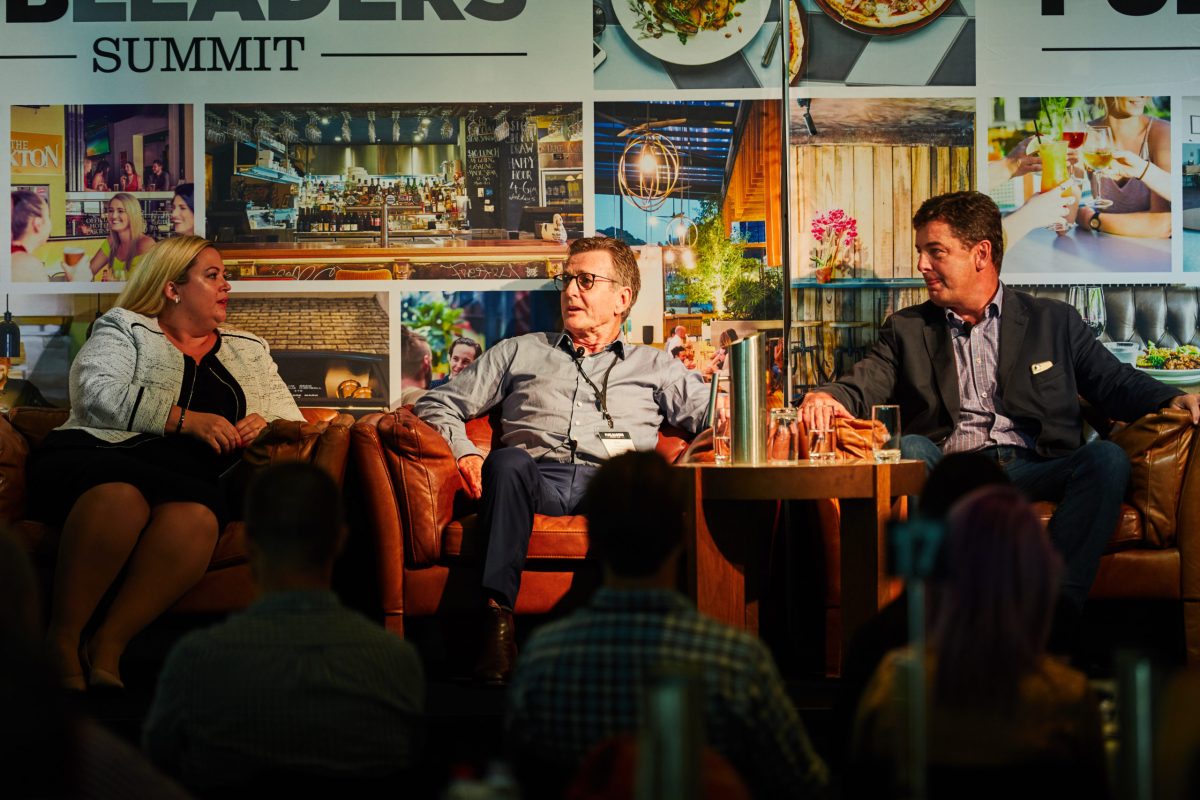Respected operators Jackie Booth (Zagame’s), Brian Fitzgibbons (Glen/Osbourne Hotels), Jaz Mooney (Pelathon), and Annette Verhoeff (Red Rock Leisure) discussed what they expect to shape pubs in the next 12 months and beyond at the Pub Leaders Summit.
Here are a few of the challenges and opportunities that the panel believes that the industry will have to contend with in the future.
More dietary-inclusive menus
For Booth, more health-conscious menus are a must to attract a broader variety of patrons – something that has become a considerable feature of the food offering at Zagame’s pubs in Victoria.
“We launched a complete vegan menu and a complete gluten-free menu in our pubs. Our vegan menu now is the equivalent of 10 per cent of our sales, so we saw some really good growth there.
“You have to be on board with it, so we had to sell the story to our chefs and managers and bring them on the journey, to ensure they embraced it. Our kitchens had to be reviewed to ensure they could sustain the menus, especially the gluten-free menu. So every single one of our staff members underwent allergy training to ensure confidence in what they were selling. We’re a pretty progressive company and we’ve got some great staff who believe in the brand.”
Preparing for the downtimes
The entire panel were adamant in suggesting it was no good to focus on one stream of operations to the detriment of others, stating in times of uncertainty a well-balanced – and therefore insulated – offering would allow venues to see out the tougher times.
“We want to ensure that when the downtimes do come – because they are coming – that we have a value-for-money offering. You need to be across all of those areas,” stated Mooney.
“We’ve had 25 years of the lucky country and it is absolutely fantastic and it should continue, but it will be sporadic and it will be the people who reinvest and train their staff properly and are really passionate about this industry [who survive].”
Employee expectations
As staffing was a big topic of the day, in this panel Verhoeff urged the industry to get behind a shift to more sustainable hours for staff, to increase long-term retention.
“I think it’s really incumbent on the industry to make a real shift away from the casualised workforce. We have to create the view of working in pubs as a genuine career, and you’re never going to achieve that if you continue to have a casual workforce. There are chefs and front-of-house staff out there that only work on casual rates because in the past they’ve been worked in the ground under poor conditions.”
Verhoeff said that part of the big appeal at Red Rock Leisure is the cultural importance within the group of a proper work/life balance.
Technology adoption
Booth highlighted that as consumer behaviour and expectations change, so must venues – particularly in the technologies they adopt.
“People want instant gratification in real time with communication. Things like messaging: people wanting to make a reservation but they don’t want to speak to anyone, they want to be able to do it online but they want to be able to ask questions and get that feedback instantaneously. You look at some big organisations now that are actually moving away from email correspondence to instant messaging. They’re having people sitting there behind the help desk actually answering questions, because people simply don’t want to wait anymore. So we need to embrace that as an industry.”
Scalability
Fitzgibbons said his main concern is how to keep pubs outside of Sydney and Melbourne – where venues are busy every night of the week – scalable.
“My obsession in the last couple of years has been thinking about how you can scale your pub. They’re a fixed structure and on Monday they’re way too big – I’m talking about in Brisbane – but on the weekend they fit just fine. So how can you scale it so that you can operate as efficiently as you can early in the week? Because for most venues they absolutely disregard the actual cost of operations during that seven-day period, and that the profit that they make on the weekends, a lot of it is gobbled up by the losses they make earlier in the week. So how do we deal with that?”
Booth suggested allowing staff to be a part of this conversation, something they’ve introduced at Zagame’s.
“We ensure that all of our staff are part of that wage process. They’re all aware of what our labour percentage is, how many hours can be used in that day and what our revenue is expected to be. I think when you communicate this with the staff, they’ll help you bring it to life. We’ve had some great results where we’ve gone from showing massive labour costs earlier in the week and by implementing this tool, the staff are actually talking to each other about ‘I used an extra hour last night, can you see if you can save it tomorrow night?’ or ‘You’ve got an extra two hours this week, let’s see what we can do with it.’”
Diversity
On a great note to end the conference, Verhoeff suggested that all operators have to really ensure that diversity is a big part of their venues from now on, reflecting community expectations.
“The pubs of the future need to be more inclusive, they need to embrace diversity. It’s nice to see that we’ve got diversity on the panels today. It is something that our customers want to see. It’s about creating spaces that are open and welcoming to all.”

